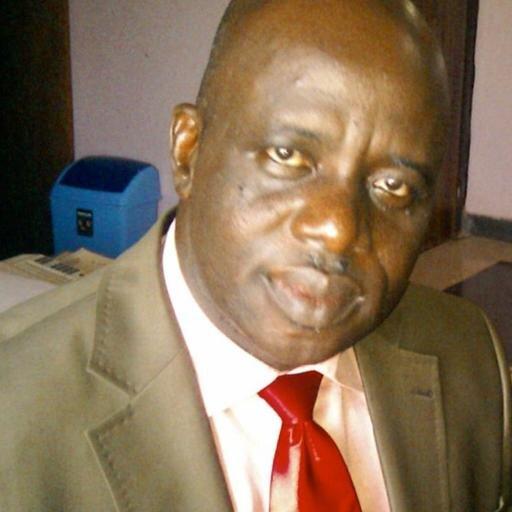I have always been amazed at the level of interest and enthusiasm in the personal effectiveness module of our Management Development Skills courses and even during many personal coaching sessions. The core of issues for most managers are capacity for speed, procrastination and inability to achieve the right priority. Of course, it all boils down to personal effectiveness, again.
We will continue with our discussion from the last edition. There are a few things worth mentioning before we proceed.
There is a significant difference between activities (being busy) and being productive. Productivity is spending your time on value adding activities that deliver results. Being busy does not necessarily lead to the same thing. Someone can be very busy, but not that productive. Discipline and attitude are also important.
Personal effectiveness means being disciplined in your approach and having the right attitude to work and your behaviour.

Let’s proceed now with some additional tips, tools and techniques for helping you to increase your personal effectiveness as a manager.
Manage your energy
We all have our levels of energy (physical and mental), varying from time to time during the day. So, the first thing is to identify our personal cycle. The second thing is to marry our daily energy-cycle with the requirements of our daily schedule – that is, things to do.
After a decent night’s sleep, most people are at their freshest for the first three to four hours of any day. However, only few people use this time effectively. Some of it is eaten up getting ready for work, getting out of the house and commuting to work (especially in cities like Lagos, Port Harcourt and Abuja). They arrive at the workplace, complete their to-do list, have a coffee, have a chat, check their emails and so on. In doing so, we are wasting time on low energy tasks during our high energy time – when we should be spending time on things that require thought, concentration and energy.
Low energy times are just before lunch and especially for the hour or so after lunch, as you digest your food. Plan your daily activities and tasks around your energy!
Take control of email and social media activities
Email has become an essential part of our personal and work-life. Email, for all its good, has taken control of so many people. They live it and breathe it. It is time you get a grip!
The first thing you need to realise is that when people send an email, they generally (not in all cases) don’t want a reply immediately. They don’t know where you are or what you are up to; so an immediate reply is probably not necessary – that is what the phone is for. Take control of your email by:
* Checking it periodically rather, than have it minimised on your screen. Disable desktop notification. People are easily distracted by emails that come in while they are in the middle of something. Check it, perhaps four to five times per day, at times of low energy, in particular.
* Using the rules function. The rules function in most email systems is easy to use. It will pre-sort your email by name, subject, priority etc. as it comes into your mailbox. This minimises the number of emails in your main inbox and can help with prioritising emails, particularly those from important people or events.
* Applying the point discipline to all email. Forward it, reply to it, file it or bin it. Minimise the amount of time you read an email by applying one of these four disciplines. Remember, if there is an action from it, put this on your to-do list.
Closely rivaling email is the amount of time and attention we pay to social media activities. In fact, it seems more pernicious in terms of the distraction it causes. Because it is often personal, and sometimes a lot more addictive, it requires more determination and aggressiveness to deal with. Here is a suggestion: Keep your social accounts on a device separate form official phone lines/device and keep the “social media phone” far away from you during work or when you need to fully concentrate on a project or assignment. Otherwise….
Manage distractions
During the course of any day, we can be distracted by any number of things, for example phone calls and callers to the office. Let’s focus on these two. Most managers have the ability to filter phone calls, using voice mail. If so, update your voicemail message daily (this takes 20 seconds) so people know that you are in the office but not available.
Manage the calls by calling people back at times that suit you. Remember, it is important to always return calls as this creates an expectation that you do return calls and that you are reliable in this regard. This stops people ringing back two or three times.
Visitors to your office can be good – if you want them to be there. Take control of people coming in – it is not a bus stop after all! Try these steps:
Allocate protected time to certain people during the course of the week. This means meeting some of your staff at allocated times in the week, Monday morning perhaps.
Tell people you are busy, if they call; but give them a time either to come back or a time that you will come back to them.
Establish ground rules: When your door is closed you are busy (except in an emergency), but when it is open you are free for a visit.
Remove encouragements to stay – for example, move chairs away from your desk or place a box on them to stop people sitting down.
Effective communications
Most people are born with the physical ability to talk, but we must learn to speak well and communicate effectively. Communication therefore is a process that involves sending, receiving, and interpreting messages.
Speaking, listening, and our ability to understand verbal and non-verbal meanings are skills we develop in various ways. All said, communication is a learnt skill. Effective communication occurs only when the receiver interprets the message (verbal or non-verbal) the way the sender intended. Please note that the responsibility for effective communication is absolutely the responsibility of the sender. Effective communication requires you take into consideration the receivers’ experience, education, culture, etc; as well as your purpose of communicating, the mode, medium, channel, etc. The rule of the thumb is to make your communication “idiot-proof”.
Network, relationship and empathy
I am sure you have heard that more than 80 per cent of your success depends on your interpersonal relationship and networking skills. This is more so for sales leaders and managers who require and depend on others for their success, most of whom they have little control over: customers, healthcare providers, administrators, gatekeeper, influencers, users, deciders, owners, other departments’ personnel, etc.
You should aspire to have the highest possible network, 360-degree. Manage with empathy, look beyond the formal. Make as many friends of your subordinates as much as possible.
Adopt continous improvement philosophy
I strongly believe you need to constantly take a look at yourself inwardly for personal improvement opportunities in your ways, style, delivery, relationship, work ethic, skills, etc. This is called commitment to personal improvement.
There is always room for improvement. Even the best can, and should, become better.
Thank you for your time attention
Tunde Oyeniran, a Sales/Marketing Strategist, Selling/Sales Management Trainer and Personal Sales Coach is the Lead Consultant, Ekini White Tulip Consulting Limited, Lagos. We deliver training, recruitment and field force management solutions. Feedback channels: 080-2960-6103 (SMS/WhatsApp) /ekiniwhitetuliptraining@gmail.com or check out https://fb.me/EkiniWhiteTulipConsulting














usa pharmacy india buy prescription drugs
generic tadalafil: http://tadalafilonline20.com/ tadalafil tablets
tadalafil online – tadalafil buy online tadalafil generic